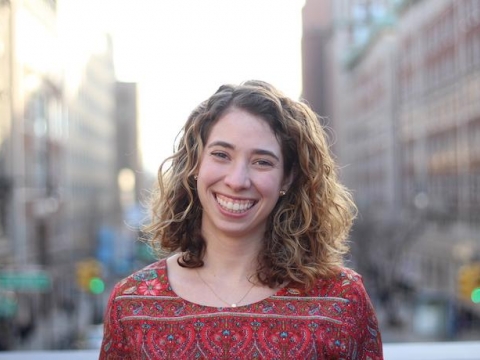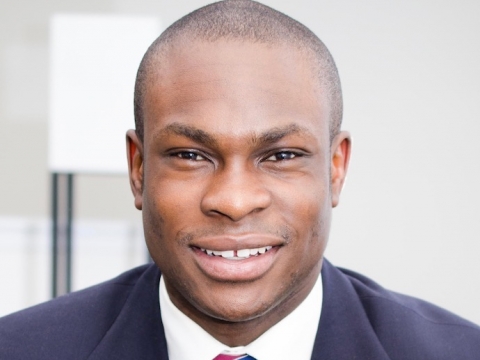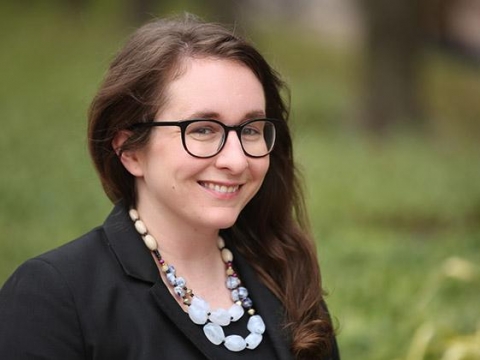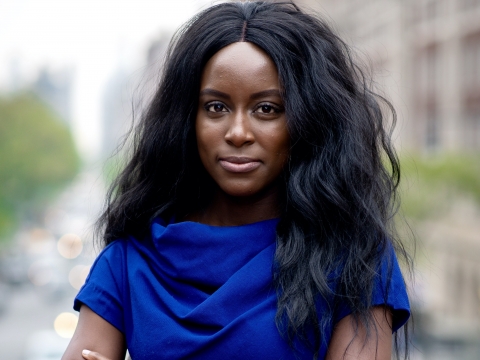Meet ‘Columbia Law Review’ Editor in Chief Taoxin Wang ’22
Wang’s mission is to ensure that the journal remains an independent, apolitical platform for free-flowing intellectual discourse.
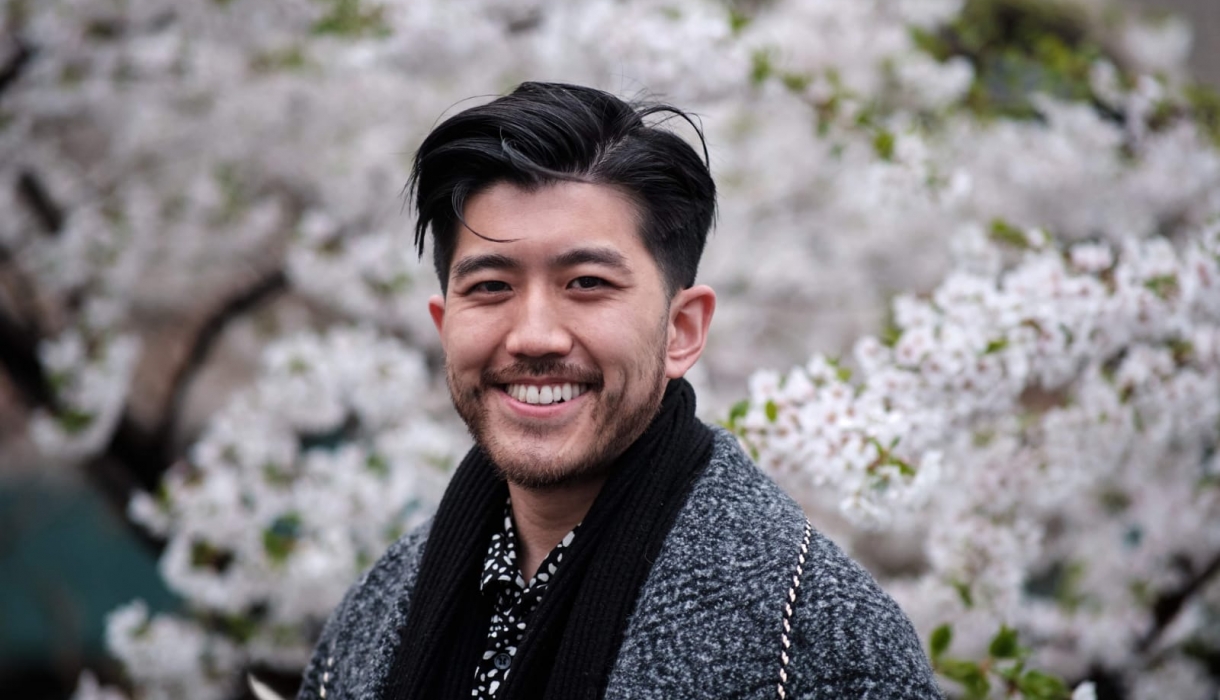
At the end of his 1L year, in May 2020, Taoxin “Xin” Wang ’22 was fairly certain that his entire 2L year would consist of remote classes. In search of ways to deepen connections with other students, he applied to join the staff of the Columbia Law Review. “My peer mentor encouraged me and told me about the community that exists on the Review, which in light of COVID had outsized importance,” he says.
Wang also saw working on the 120-year-old journal as a way to broaden his exposure to various areas of the law without having to enroll in a semester-long course on a subject. “I felt it would be a way to satisfy my intellectual curiosities,” he says, noting the Review’s influence and reputation for thought leadership. “The work we do is transformative. Professors get tenure based on the pieces they get published in journals. These pieces guide and inform public discourse, which gets turned into policy. Being on the staff of the Review is a great opportunity to engage in this kind of work.”
The Road to the Review
As a junior staffer in fall 2020, Wang worked with professors on articles by providing feedback and making sure they were properly cited and formatted. “It teaches you a lot about paying meticulous attention to detail,” he says. “It teaches you research and analytical skills that you may not have developed as a 1L.”
The executive board of the Review was impressed with Wang and encouraged him to apply for the editor in chief position. “Their confidence in me was very flattering, very humbling,” says Wang, who also found time to work with Rightslink, the student-run human rights organization.
The editor in chief position appealed to Wang for several reasons. “As a 2L, you are primarily concerned with reviewing specific sections of the articles that you were assigned, and I wanted to understand the ongoing dialogue between professors, faculty, staffers, and the business of publication itself,” he says.
Wang says he was inspired by Oluwatumise Asebiomo who was editor in chief of the Review from February 2020 to February 2021. “She always led this organization with grace and made us produce to the best of our abilities,” he says. “It was one of the most challenging times in the history of the organization, as we were not only dealing with a pandemic but also a lot of racial and social tensions in the country. As a Black woman, Tumise dealt with the brunt of those issues. She was incredible. I wanted to see if I could rise to the challenges that come with being the figurehead of an influential legal institution as she had.”
Making a Difference
As an undergraduate studying behavioral neuroscience and pharmacology at McGill University in Montreal, Wang went on a three-month service trip to Recife, Brazil, where he worked with a local NGO to organize educational and sports workshops for underprivileged youth. He also witnessed how Brazil was reeling from political and social unrest following allegations of rampant government corruption and grappling with calls for social reform with regards to LGBTQ+ rights. “Growing up in suburban Toronto, I was kind of sheltered, so being thrown in there as an outsider was really eye-opening,” he says. “It was a transformative experience for me, but the work we did was very superficial and not sustainable.”
When Wang returned to Canada, he serendipitously met Farouk Meralli, who had founded the Canadian charity Borderless World Volunteers (BWV) following his own disappointing experience as an undergraduate on an overseas service trip. After graduating from McGill, Wang went to work for BWV. “It’s a nonprofit that empowers university students to devise and implement international service trips and exposes them to different cultures with different socioeconomic issues,” he says, noting that many other service trips organizers are for-profit companies. “The idea of Borderless World Volunteers is to make international service trips accessible to folks who might not otherwise get the opportunity, and position them to make a real, positive impact on local communities.”
Wang found the work meaningful at BWV, and he helped the local community by working with youth advocacy groups in Montreal, Toronto, and London that focused on mental health and addiction issues. But he wanted to make even more of an impact on the world. “Law school seemed like it might be a good fit,” says Wang. “It was the right move because I really enjoy law school, which I know is not something everyone can say.”
As a Canadian, Wang knew barely anything about the U.S. Constitution when he arrived at Columbia Law, but Constitutional Law has been one of his favorite classes. “It’s really interesting because the Constitution is a document that obviously has a lot of historical and outsized impact,” he says. “But everyone sort of perceives it differently and has their own interpretation of what it means or which values in it are more important than others. I think that is what law school is all about: We’re operating on these broad parameters but everyone thinks differently about the process, and I find being a part of these conversations very exciting.”
Leading the Way
As he spearheads the journal’s return to its offices in William C. Warren Hall, Wang is especially excited about a symposium on state law planned for the spring and being organized by Symposium and Book Review Editor Domenic Canonico. “It will feature our very own Professor Colleen Shanahan and be called ‘The Other 98 Percent: Racial, Gender, and Economic Injustice in State Civil Courts’,” he says. (According to Shanahan, who has written on the subject, 98% of civil cases in the United States take place in state courts.) “State law is something that doesn’t get as much attention as perhaps it should,” says Wang. “There’s a tendency to focus on federal decisions and cases, but a lot of things happen on the state level. Domenic is working hard with Professor Shanahan to bring attention to issues that may not be addressed in conventional law review articles.”
Now, months into his tenure, Wang is thriving in the role. “I am engaged substantively with the work we produce because the editor in chief reads every piece at least twice before publication, and I also enjoy the social aspect because I am getting to know the other folks in this organization better,” he says. “I look forward to restrengthening the journal’s sense of community after this past virtual year, while continuing to uphold its legacy for advancing cutting-edge legal scholarship.”
